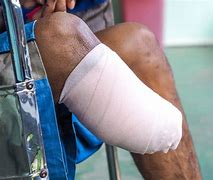Diabetes, a chronic metabolic disorder characterized by elevated blood sugar levels, poses a significant global health challenge. Its long-term complications can affect various organ systems, including the cardiovascular system, kidneys, eyes, and nerves. One particularly devastating consequence of diabetes is the development of diabetic foot ulcers, which, if left untreated or inadequately managed, can lead to infections and ultimately necessitate amputation. The psychological and emotional impact of amputation on individuals with diabetes is substantial, often leading to feelings of grief, loss, and diminished self-esteem. Therefore, comprehensive patient education and sensitization regarding diabetes management, particularly concerning the possibility of amputation, are crucial to alleviate anxiety and promote psychological well-being.
Amputation, though a life-altering procedure, should not be perceived as the end of life but rather as a necessary intervention to preserve health and prevent further complications. Mr. Camillus Maalneriba Tia Sakzeesi, a diabetic patient who underwent amputation, exemplifies the resilience and determination required to adapt to life post-amputation. His experience underscores the importance of mental preparedness and the critical role of support systems in navigating the challenges associated with this procedure. Mr. Sakzeesi’s initial reaction to the news of amputation was one of alarm and worry, a common response among individuals facing such a drastic change in their physical condition. However, his proactive approach of educating himself about the procedure and its implications empowered him to cope effectively with the emotional and physical adjustments required.
Mr. Sakzeesi’s advocacy for increased education and sensitization highlights the need for a comprehensive approach to diabetes management that addresses not only the physical aspects of the disease but also the psychological and emotional well-being of patients. He emphasizes that the challenge lies not in the amputation itself, but in managing the aftermath and adapting to a new way of life. This adaptation requires significant psychological adjustment, including accepting the physical changes, managing phantom limb pain, and learning to navigate daily activities with a prosthesis or other assistive devices. Moreover, the social stigma associated with amputation can further exacerbate the emotional burden on individuals, leading to feelings of isolation and decreased self-worth.
The support of family and friends plays a pivotal role in facilitating the recovery and reintegration of amputees into society. Mr. Sakzeesi credits his family and friends for their unwavering support, which he attributes to his ability to lead a normal life after amputation. Their encouragement and understanding provided him with the emotional strength to overcome the challenges and maintain a positive outlook on life. This highlights the importance of creating a supportive environment for individuals with diabetes, particularly those facing amputation, to promote emotional well-being and facilitate their successful adaptation to a new reality.
Healthcare professionals also have a crucial role to play in providing comprehensive care for diabetic patients, including those facing amputation. Pre- and post-operative counseling is essential to prepare patients for the procedure, address their concerns, and equip them with the necessary coping mechanisms. This counseling should include information about the surgical procedure, pain management strategies, rehabilitation options, and the importance of adhering to post-operative care instructions. Additionally, healthcare providers should emphasize the availability of support groups and resources to help patients connect with others who have undergone similar experiences and foster a sense of community.
Mr. Sakzeesi’s story serves as a powerful testament to the resilience of the human spirit and the importance of education, support, and access to quality healthcare in overcoming the challenges posed by diabetes and its complications. His advocacy work, coupled with his personal experience, underscores the need for a holistic approach to diabetes management that prioritizes not only physical health but also the psychological and emotional well-being of individuals living with this chronic condition. By promoting awareness, providing comprehensive education, and fostering supportive environments, we can empower individuals with diabetes to manage their condition effectively, cope with its complications, and lead fulfilling lives.


